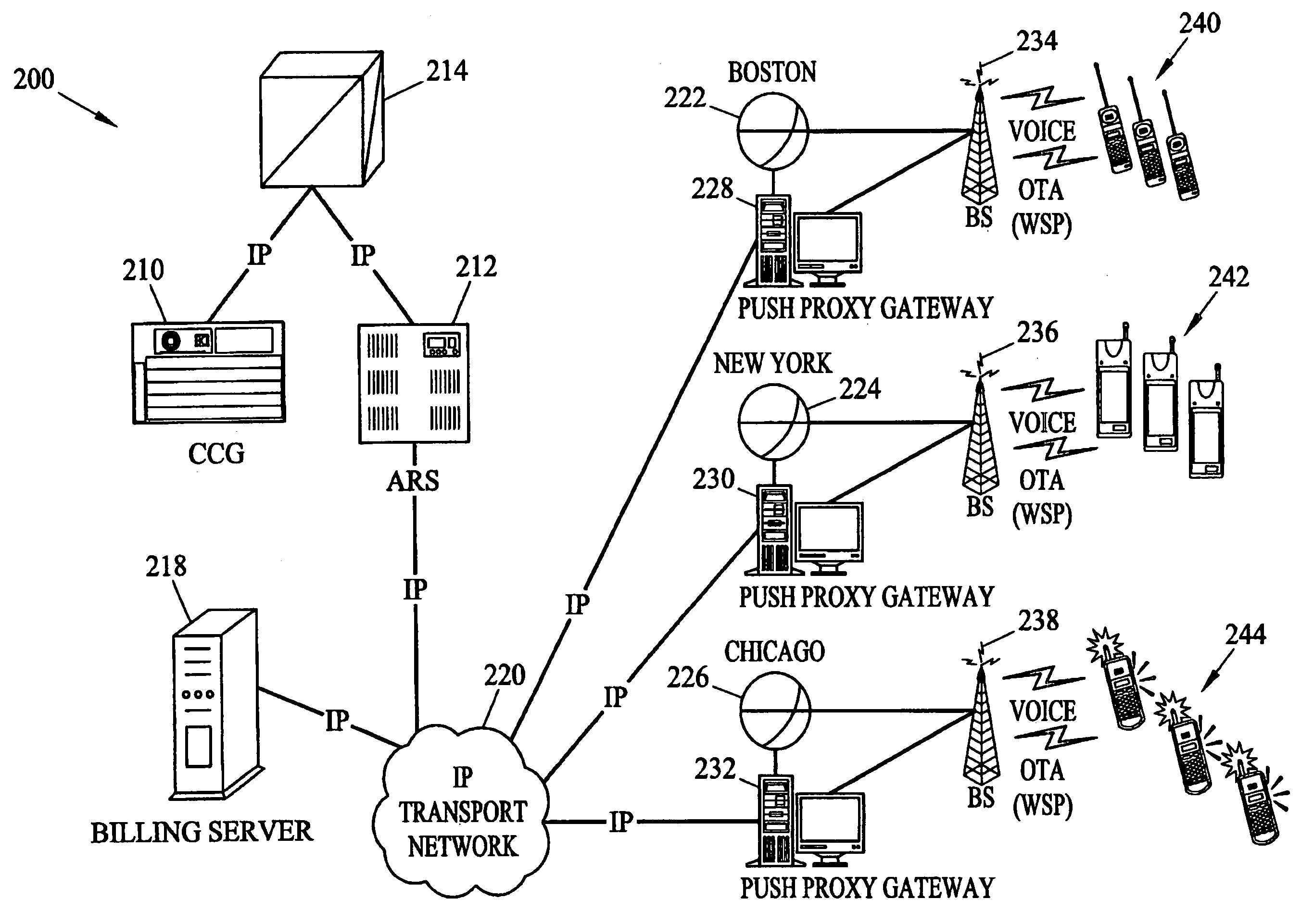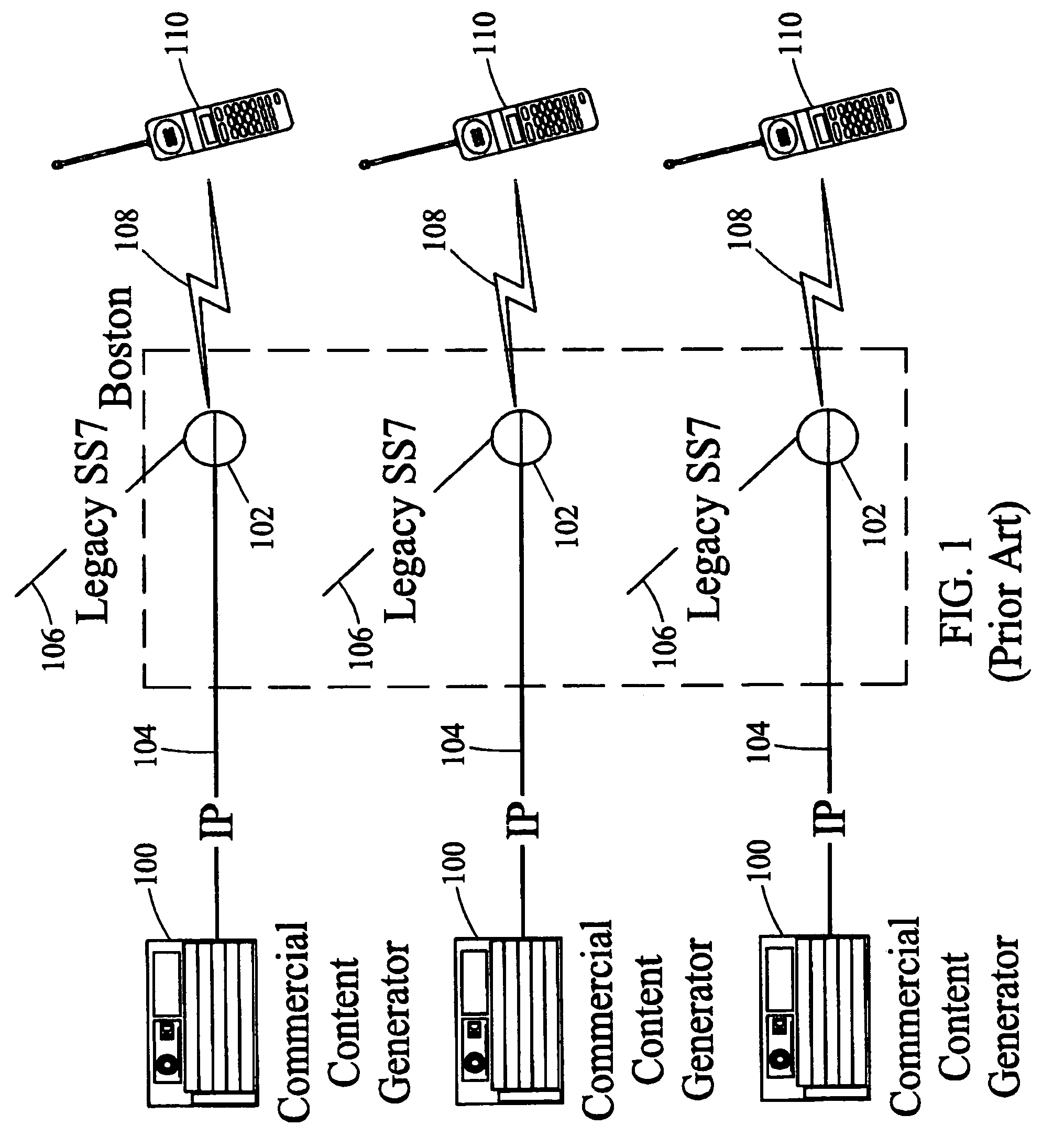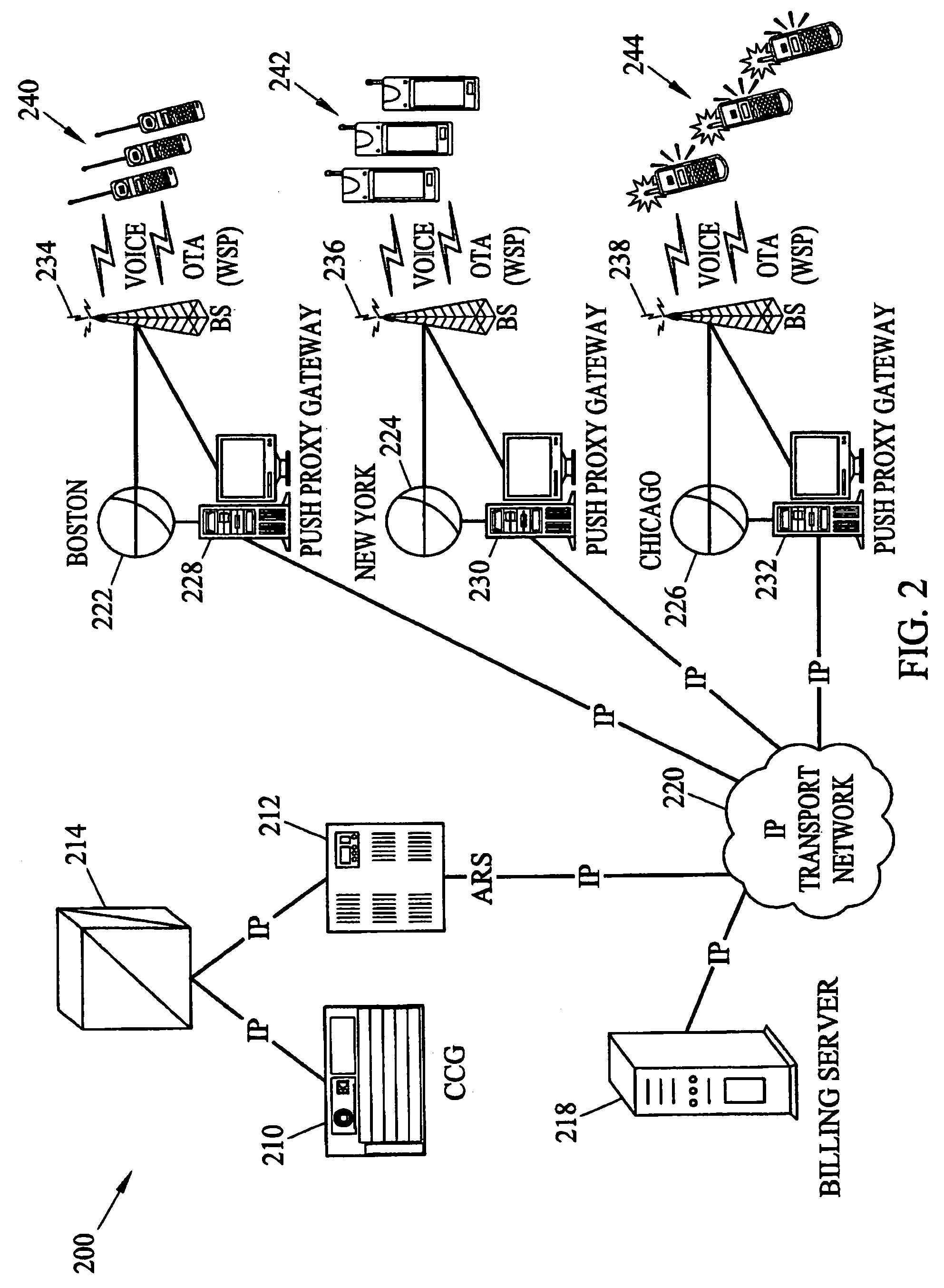Methods and systems for generating, distributing, and screening commercial content
a technology of commercial content and methods, applied in the field of methods and systems for generating and distributing commercial content, can solve the problems of not being able to achieve cost-effective evolution of the network, not being able to efficiently manage the network infrastructure that exists today to handle commercial data, and not being able to achieve the effect of improving screening and billing methods
- Summary
- Abstract
- Description
- Claims
- Application Information
AI Technical Summary
Benefits of technology
Problems solved by technology
Method used
Image
Examples
example commercial
Content Message Distribution
[0061]FIG. 5 is a message flow diagram associated with the exemplary commercial content messaging system shown in FIG. 4 and described in detail above. In this example, message 1 includes a unique transaction identifier and a WML / XML-formatted component, which is generated by CCG 210 and transmitted to SG 214. At SG 214, security and firewall policies are applied. If the message satisfies the SG security criteria, the commercial content message is directed from SG 214 to PPG ARS server 212 as indicated by message 2. An optional acknowledgement message may be generated by ARS 212 and returned to CCG 210. This acknowledgement message may include a WAP push response message that contains the unique transaction ID and a timestamp as to when the message was created. ARS 212 may examine one or more target audience identifiers in the CCG-generated message. In this example, the target audience is a geographic location based on the area code 617. The area code pre...
PUM
 Login to View More
Login to View More Abstract
Description
Claims
Application Information
 Login to View More
Login to View More - R&D
- Intellectual Property
- Life Sciences
- Materials
- Tech Scout
- Unparalleled Data Quality
- Higher Quality Content
- 60% Fewer Hallucinations
Browse by: Latest US Patents, China's latest patents, Technical Efficacy Thesaurus, Application Domain, Technology Topic, Popular Technical Reports.
© 2025 PatSnap. All rights reserved.Legal|Privacy policy|Modern Slavery Act Transparency Statement|Sitemap|About US| Contact US: help@patsnap.com



